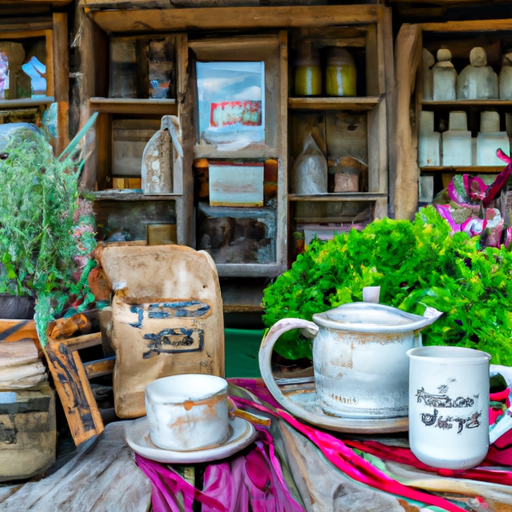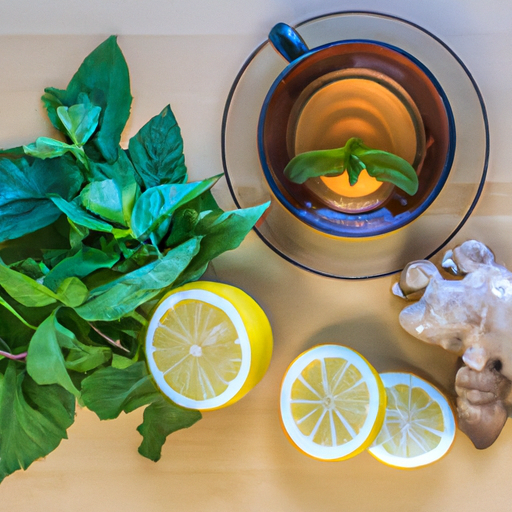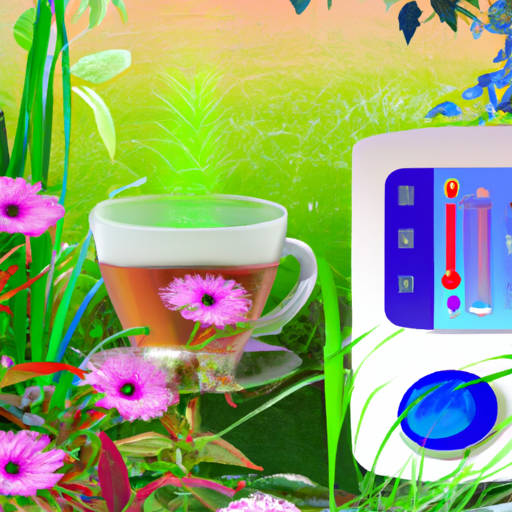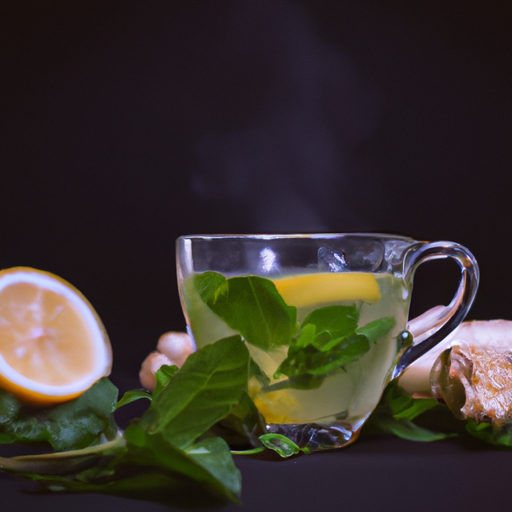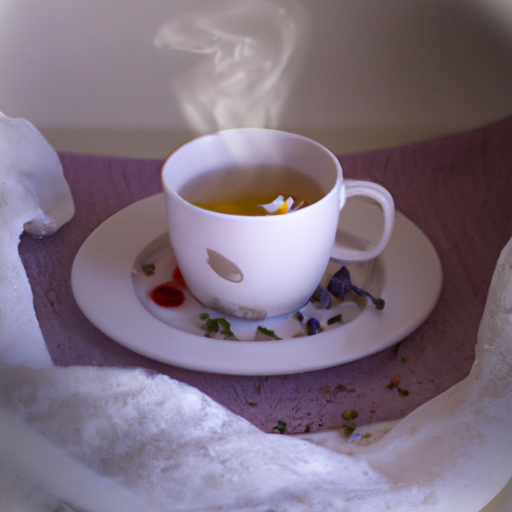As a breastfeeding mother, I often find myself seeking ways to nourish and care for my body while providing the best for my baby. One question that often comes to mind is, ‘Can I have herbal tea when breastfeeding?’
Well, the answer is a resounding yes! Herbal tea can offer numerous benefits for breastfeeding moms, from soothing digestion to promoting relaxation and boosting milk supply. However, it’s essential to choose the right herbal teas, as some may be harmful or have potential side effects for both you and your baby.
In this article, we will explore the benefits of herbal tea for breastfeeding moms, discuss safe herbal teas to enjoy, and highlight herbal teas to avoid. We will also delve into how to prepare and enjoy herbal tea while breastfeeding, potential side effects and precautions, and the importance of consulting with a healthcare professional.
So, grab a cup of your favorite herbal blend and let’s delve into the world of herbal tea for breastfeeding moms.
Key Takeaways
- Brewing herbal tea requires using fresh, filtered water and steeping for an appropriate amount of time.
- Herbal tea offers various flavors and blends for exploration.
- Certain herbal teas, like chamomile and ginger tea, can have soothing and calming effects and aid digestion and postpartum discomfort.
- When breastfeeding, it is important to consult with healthcare professionals to ensure the safety of consuming herbal tea, as certain herbs may decrease milk supply or cause diarrhea in infants.
Benefits of Herbal Tea for Breastfeeding Moms
You can definitely enjoy herbal tea while breastfeeding, as it offers numerous benefits for moms. It can boost milk production and provide relaxation. Herbal tea has been used for centuries to help with various health issues. It can be especially beneficial during pregnancy and postpartum recovery. Drinking herbal tea during pregnancy can help with morning sickness, improve digestion, and reduce stress and anxiety. After giving birth, herbal tea can aid in postpartum recovery by soothing the body, promoting healing, and relieving discomfort. Some herbal teas, like fenugreek tea and fennel tea, are known to increase milk supply, making them popular choices for breastfeeding moms. However, it’s important to note that not all herbal teas are safe for breastfeeding. So, it’s essential to research and consult with a healthcare professional before trying any new herbal teas.
Safe Herbal Teas for Breastfeeding Moms
When it comes to choosing herbal teas as a breastfeeding mom, there are a few options that are considered safe and beneficial.
Chamomile tea is known for its calming properties and can help with relaxation and better sleep, which can be especially helpful during the early stages of motherhood.
Peppermint tea is another great choice as it can aid in digestion and relieve any discomfort that may arise from breastfeeding.
Lastly, raspberry leaf tea is often recommended as it can help tone the uterus and support postpartum recovery.
Chamomile tea
If you’re looking to add a little excitement to your breastfeeding routine, why not indulge in a steaming cup of chamomile tea? Chamomile tea is not only a delicious and soothing beverage, but it also has numerous benefits for breastfeeding moms. One of the main benefits of chamomile tea is its ability to promote better sleep. As a new mom, getting enough rest is crucial, and chamomile tea can help you relax and unwind before bedtime, making it easier to fall asleep and stay asleep.
To give you a visual representation of the benefits of chamomile tea, here is a table that outlines its properties:
| Chamomile Tea Benefits |
|---|
| Calming |
| Anti-inflammatory |
| Digestive Aid |
| Immune Booster |
| Antioxidant |
Now that you know the benefits of chamomile tea, let’s move on to the next herbal tea that can enhance your breastfeeding experience: peppermint tea.
Peppermint tea
Peppermint tea offers a refreshing and invigorating twist to your daily routine, with its unique flavor and numerous benefits. Not only does it provide a soothing and calming effect on the body, but it also has several health benefits.
Peppermint tea is known for its ability to aid digestion, relieve headaches, and reduce menstrual cramps. However, when it comes to breastfeeding, there are some concerns about its effect on milk supply. While peppermint tea is generally safe to consume in moderate amounts, excessive consumption may potentially decrease milk production.
It’s important to listen to your body and pay attention to any changes in milk supply when consuming peppermint tea. If you notice a decrease, it may be best to limit your intake.
Now, let’s move on to the next section about raspberry leaf tea.
Raspberry leaf tea
Indulge in the rich and soothing taste of raspberry leaf tea, a delightful addition to your daily routine that’ll leave you feeling revitalized and nourished. Here are four reasons why raspberry leaf tea is a must-have for breastfeeding moms:
-
Promotes uterine health: Raspberry leaf has long been used to support uterine health and tone, making it an ideal choice for postpartum recovery.
-
Enhances milk supply: This herbal tea is believed to have galactagogue properties, which can help increase milk production and ensure a steady supply for your little one.
-
Rich in nutrients: Raspberry leaf tea is packed with vitamins and minerals like iron, calcium, and magnesium, which are essential for both you and your baby’s overall health.
-
Soothes digestion: Many breastfeeding moms struggle with digestive issues, and raspberry leaf tea can help alleviate discomfort and promote healthy digestion.
Now, let’s explore the herbal teas to avoid while breastfeeding, ensuring you make the best choices for you and your baby’s well-being.
Herbal Teas to Avoid While Breastfeeding
While breastfeeding, it’s best to steer clear of certain herbal teas. Although herbal teas can have many health benefits, some can potentially be harmful to your baby. It’s important to be cautious and informed about the safety of the herbal teas you consume. Here are three herbal teas that should be avoided while breastfeeding:
| Herbal Tea | Reason for Avoidance |
|---|---|
| Peppermint | Can decrease milk supply |
| Sage | Can decrease milk supply and affect baby’s central nervous system |
| Parsley | Can decrease milk supply and cause gastrointestinal issues |
These teas should be avoided due to their potential negative effects on milk supply and the baby’s health. It’s always best to consult with a healthcare professional before consuming any herbal tea while breastfeeding. Now that we understand which herbal teas to avoid, let’s explore how to prepare and enjoy herbal tea while breastfeeding.
How to Prepare and Enjoy Herbal Tea while Breastfeeding
When it comes to enjoying herbal tea while breastfeeding, there are a few key points to keep in mind. First, opt for organic and caffeine-free teas to ensure they’re safe for both you and your baby.
Next, make sure to brew the tea properly to maximize its benefits, such as steeping it for the recommended amount of time.
Lastly, don’t be afraid to experiment with different flavors and blends to find the ones that you enjoy the most. Remember, it’s important to prioritize your health and well-being while breastfeeding, and herbal teas can be a soothing and enjoyable addition to your routine.
Use organic and caffeine-free teas
Organic and caffeine-free teas are an absolute must for breastfeeding moms – nothing else compares! When it comes to enjoying herbal tea while breastfeeding, choosing organic options ensures that you’re consuming teas made from plants grown without harmful pesticides or chemicals. This means you’re not exposing yourself or your baby to potentially harmful substances.
Additionally, opting for caffeine-free teas is important because caffeine can pass into breast milk and affect your baby’s sleep patterns and overall health.
To make your tea-drinking experience even more enjoyable, here are three bullet points to consider:
- Look for teas labeled as ‘certified organic’ to ensure they meet strict standards.
- Explore a variety of herbal options such as chamomile, peppermint, and ginger.
- Consider blends specifically formulated for breastfeeding moms, which may include ingredients like fenugreek or fennel.
By choosing organic and caffeine-free teas, you can confidently savor your cup of herbal goodness knowing that you’re taking care of yourself and your little one.
Now, let’s move on to the next section and learn how to brew the tea properly for maximum benefits.
Brew the tea properly for maximum benefits
To truly maximize the incredible benefits of your soothing cup of tea, let’s dive into the art of brewing it just right.
When it comes to herbal tea, the brewing technique plays a crucial role in extracting all the goodness from the leaves and flowers. First and foremost, make sure to use fresh, filtered water that hasn’t been boiled repeatedly. This helps preserve the delicate flavors and aromas.
Additionally, steep the tea for the appropriate amount of time. Steeping it for too long could result in a bitter taste, while not steeping it long enough may leave you with a weak brew.
By following these brewing techniques, you can unlock the full potential of herbal tea and experience its numerous health benefits.
Now, let’s move on to the exciting world of experimenting with different flavors and blends.
Experiment with different flavors and blends
Discover the joy of exploring a variety of flavors and blends, and let your taste buds embark on a delightful adventure with different types of herbal tea. Experimentation is key when it comes to finding the perfect flavor that suits your palate. Not only can herbal teas provide a soothing and calming effect, but they also offer numerous health benefits. For instance, chamomile tea can promote relaxation and improve sleep quality, while peppermint tea aids digestion and relieves gastrointestinal discomfort. To help you visualize the range of options available, here is a table showcasing four popular herbal tea flavors and their associated health benefits:
| Flavor | Health Benefits |
|---|---|
| Chamomile | Promotes relaxation and improves sleep quality |
| Peppermint | Aids digestion and relieves gastrointestinal discomfort |
| Rooibos | Rich in antioxidants and may support heart health |
| Ginger | Reduces inflammation and alleviates nausea |
As you experiment with different flavors, it’s important to be aware of potential side effects and precautions.
Potential Side Effects and Precautions
Although herbal tea is generally considered safe while breastfeeding, it’s important to be aware of potential side effects and take necessary precautions.
While herbal teas can provide a soothing and enjoyable experience, there are some potential risks to consider. Certain herbs used in herbal teas, such as peppermint or sage, may decrease milk supply in some women. It’s also important to be cautious with certain herbal teas that may have a laxative effect, as this can cause diarrhea in breastfeeding infants.
To minimize these risks, it’s advisable to choose herbal tea alternatives that are known to be safe during breastfeeding, such as chamomile or ginger tea. Additionally, consulting with a healthcare professional is always recommended to ensure the safety and well-being of both mother and baby. It’s important to discuss any concerns or questions you may have about herbal tea consumption while breastfeeding.
Consultation with a Healthcare Professional
Before making any decisions about consuming herbal tea while breastfeeding, it’s crucial to consult with a healthcare professional such as a doctor or lactation consultant. They can provide valuable guidance and address any concerns or questions you may have regarding specific herbs and their potential effects on both you and your baby.
Seeking expert advice ensures that you make informed choices based on evidence-based information, prioritizing the health and well-being of both you and your little one.
Seek advice from your doctor or lactation consultant
Consult your doctor or lactation consultant for advice on whether you can enjoy herbal tea while breastfeeding. Seeking advice from professionals is important to ensure the safety of both you and your baby. They can provide you with the necessary information and guidance on the use of herbal teas during breastfeeding. It is crucial to be aware of any potential risks or contraindications associated with specific herbs. To give you a better understanding, here is a table highlighting some common herbal teas and their potential effects on breastfeeding:
| Herbal Tea | Potential Effects on Breastfeeding |
|---|---|
| Chamomile | May have a calming effect on both mother and baby. |
| Peppermint | May decrease milk supply in some women. |
| Raspberry Leaf | Believed to help support milk production. |
| Ginger | May help relieve nausea but should be consumed in moderation. |
Remember to discuss any concerns or questions about specific herbs with your healthcare provider or lactation consultant. They can provide personalized advice based on your individual circumstances.
Discuss any concerns or questions about specific herbs
When it comes to herbal tea and breastfeeding, it’s always a good idea to seek advice from your doctor or lactation consultant. They can provide personalized guidance and address any concerns you may have.
It’s important to discuss any specific herbs you’re considering with them, as certain herbs may have different safety profiles during breastfeeding. They can inform you about potential side effects and help you make an informed decision.
In general, many herbal teas are considered safe for breastfeeding moms, but it’s always best to err on the side of caution and consult with a healthcare professional.
Moving on to other considerations for breastfeeding moms, there are additional factors to keep in mind to ensure the well-being of both mom and baby.
Other Considerations for Breastfeeding Moms
While nursing her baby, a breastfeeding mom can sip on a soothing cup of herbal tea, feeling the warmth spread throughout her body as she takes a moment to relax and rejuvenate.
Many herbal teas are safe for breastfeeding moms and can even offer potential benefits. Some herbs, such as fenugreek and fennel, have been traditionally used to promote breast milk production. However, it’s important to note that the evidence for their effectiveness is limited and individual results may vary.
Other herbs, like chamomile and ginger, can help with digestion and easing postpartum discomfort. Nonetheless, it’s always a good idea to consult with a healthcare professional before incorporating any herbal remedies into your breastfeeding routine.
In conclusion, while herbal teas can be a comforting addition to a breastfeeding mom’s routine, it’s important to prioritize safety and seek professional advice when needed.
Conclusion and Final Thoughts
Take a moment to prioritize your well-being and seek professional advice regarding herbal remedies for your breastfeeding journey. When it comes to herbal tea, it’s important to consider the potential benefits it can offer.
Herbal teas, such as chamomile, peppermint, and fenugreek, have traditionally been used to support lactation and provide relaxation for breastfeeding moms. However, it’s crucial to remember that not all herbal teas are safe for breastfeeding and some may have adverse effects on your milk supply or your baby’s health.
It’s always best to consult with a healthcare provider or a lactation consultant before incorporating herbal teas into your breastfeeding routine. They can provide guidance and ensure that you’re making the best choices for both you and your baby.
Ultimately, your well-being and the health of your little one should be the top priority.
Frequently Asked Questions
Are there any specific herbal teas that can help increase milk supply while breastfeeding?
Certain herbal teas, such as fenugreek, blessed thistle, and fennel, have been shown to potentially increase milk supply while breastfeeding. However, it is important to consult with a healthcare professional before incorporating them into your routine.
Can herbal teas have a negative impact on the taste of breast milk?
Herbal teas can sometimes have a negative impact on the taste of breast milk. Certain herbs can alter the flavor, making it less appealing to some babies. It’s important to be mindful of this while breastfeeding.
Are there any herbal teas that can help with postpartum depression or anxiety?
Herbal tea can be a natural remedy for postpartum depression or anxiety. It offers numerous benefits for breastfeeding mothers, including relaxation, stress reduction, and mood enhancement.
Is it safe to consume herbal teas that contain caffeine while breastfeeding?
While breastfeeding, it’s best to avoid herbal teas containing caffeine due to their potential effects on breast milk production. Instead, opt for caffeine-free herbal teas or other hydrating beverages like water or decaf tea.
Can herbal teas pass through breast milk and cause colic or digestive issues in breastfed babies?
Herbal teas can pass through breast milk, but the amount is usually minimal and unlikely to cause colic or digestive issues in breastfed babies. It is generally safe to consume herbal teas with caffeine while breastfeeding, but moderation is key.
Conclusion
In conclusion, herbal tea can be a soothing and beneficial addition to a breastfeeding mom’s routine. Just like a warm embrace, it offers comfort and nourishment. However, it’s essential to choose safe herbal teas and avoid any that may have negative effects on you or your baby. Remember to consult with a healthcare professional before introducing any new herbal teas into your diet. With their guidance, you can enjoy the many benefits of herbal tea while nurturing your little one with love and care.


